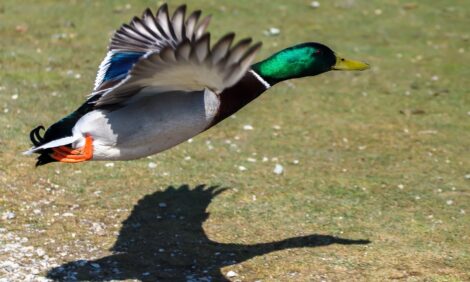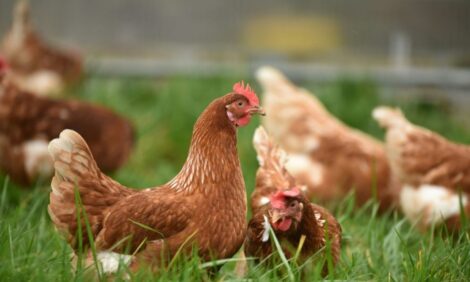



Successful Development of a New Candidate Turkey Influenza Vaccine
Drs Chang Won Lee and Yehia M. Saif of Ohio State University describe how their work has led to the development of a new vaccine in a report from the US Poultry & Egg Association.Turkeys are susceptible to a broad range of influenza viruses and serve as important hosts for this virus. Unlike chickens, turkeys are susceptible to several different subtypes of swine influenza viruses and vaccines have been widely used to protect turkey breeders against the swine influenza virus in states with large swine populations. Since 2003, triple reassortant (TR) swine H3N2 viruses that contain gene segments from human, avian and swine origins have been detected in the US turkey population. The outbreak that occurred included birds that were vaccinated with the currently available swine/avian-origin vaccines.
Drs Lee and Saif said that there in-vivo study demonstrated the successful establishment and replication of H3N2 viruses in turkeys, both in upper respiratory and intestinal tracts. These viruses also transmitted efficiently to the uninoculated cage mates. All turkey isolates were closely related antigenically to each other. However, the turkey isolates showed little or no antigenic cross-reactivity with the avian origin or swine origin vaccine strains that are currently being used. These results call for re-evaluation of currently available vaccines being used in turkey flocks and development of more effective vaccines.
The primary objective of this proposal was to develop advanced DIVA (differentiation of infected from vaccinated animals) vaccines for H3N2 influenza in turkeys. To accomplish this, Lee and Saif specifically proposed to:
- Select one of the recent H3 subtype strains that shows broad cross reactivity with other recent H3 subtype viruses
- Create NA and NS-based DIVA vaccine strains, and
- Determine the protective efficacy of those vaccines after in-vivo vaccination and challenge in young and breeder turkeys.
In this study, the researchers selected one of the recent strains, A/turkey/OH/313053/04 (H3N2), that showed broad cross reactivity with other recent turkey H3N2 isolates. They created NA- and NS-based DIVA vaccine strains using traditional reassortment as well as reverse genetics methods. Protective efficacy of those vaccines was determined in two-week-old and eighty-week-old breeder turkeys. The reassortant DIVA vaccines significantly reduced challenge virus shedding in the oviduct of breeder turkeys as well as trachea and cloaca of both young and old breeder turkeys, suggesting that proper vaccination could effectively prevent egg production drop and potential viral contamination of eggs in infected turkeys. In addition, we showed that two serologic tests (N2-specific ELISA and NS1-specific Fluorescence Microsphere Immunoassays (FMIA)) hold great promise as DIVA serological assays to differentiate infected from vaccinated birds.
In summary, Lee and Saif say their results demonstrated that the heterologous NA and NS1 DIVA vaccines together with their corresponding serological tests could be useful for the control of TR H3N2 influenza in turkeys.
Turkey production in the US has increased nearly 300 per cent since 1970 with a total value of turkey processors' production in 2007 at more than $13.9 billion. Thus, protection of turkey flocks by effective control and prevention of influenza are critical to maintain stable turkey and turkey product markets. Such efforts will also make a significant contribution toward national food security. The newly developed vaccine is readily available for commercialisation without the need for dealing with patent or licence issues.
Further Reading
| - | Find out more information on avian influenza by clicking here. |
February 2010








